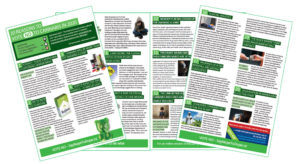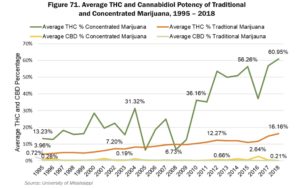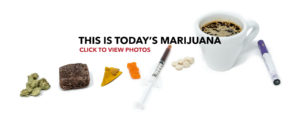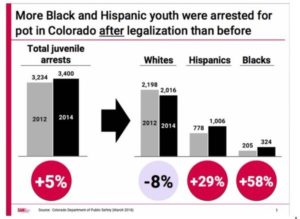20 Reasons To Vote NO
DOWNLOAD this information as a PDF

Translations of this Pamphlet are now available. CLICK HERE
1. POTENCY – TODAY’S MARIJUANA IS A DIFFERENT, HARDER DRUG
When drug advocates talk about marijuana, they’re not referring to the 2%-THC of the ‘Woodstock weed’ era. Potency – the amount of THC (the psychoactive chemical in cannabis) – has been increasing steadily in the past few decades. And with increasing THC levels in marijuana products, consumed via edibles, vaping and dabbing, the risk is growing. The New Zealand government has already indicated that they want to allow 15% THC content. In Colorado, the average THC content of all tested flower in 2017 was 19.6%, and for concentrated extract products, 68.6%. Potency rates can now be as  high as 99.9%. It was just a plant – but it isn’t today. It is a fundamentally different, harder drug.
high as 99.9%. It was just a plant – but it isn’t today. It is a fundamentally different, harder drug.
2. WE’VE BEEN LIED TO BEFORE
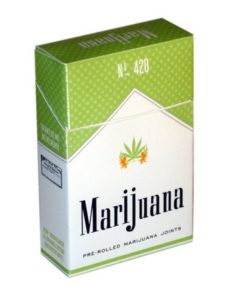
THIS IS NOT YOUR PARENTS’ POT
Remember Big Tobacco? Tobacco companies lied to New Zealanders and the world for more than a century about the dangers of smoking. They based their market on addiction. They deliberately targeted kids. They even had doctors promote cigarettes as medicine. And today we are paying the price. The conversation is now being dictated by Big Marijuana, who will deny evidence-based science, and emphasise the economic benefits of large tax revenues, while ignoring the harms. But people  should always come before profits.
should always come before profits.
3. CANNABIS WILL BE MORE THAN JUST SMOKING A JOINT
In addition to smoking a joint (at the same time as we aim to go ‘SmokeFree 2025’), myriad cannabis products (e.g., edibles, concentrates, infusions, tinctures, lotions and butters) will eventually be available and heavily marketed. These products can be smoked, eaten, vaped, or used topically. Many of these products are easily transportable and readily  concealed or disguised, and appealing to children.
concealed or disguised, and appealing to children.
4. DOPE IS ADDICTIVE AND HARMFUL – IT WRECKS LIVES

According to virtually every scientific review, including a 2016 World Health Organisation (WHO) report and a 2017 National Academy of Sciences study, marijuana is addictive and harmful – despite rhetoric from the marijuana industry. Direct associations have been made between the frequency of marijuana use and higher THC potency with the development of mental health issues (psychosis, depression, anxiety, suicidality, reshaping of brain matter, and addiction). Links to lung damage and serious cardiovascular problems have also been found (hypertension, myocardial infarction, cardiomyopathy, arrhythmias, stroke and cardiac arrest). Chronic adolescent  marijuana use has been correlated with cognitive impairment and a decreased ability to do well in work or school.
marijuana use has been correlated with cognitive impairment and a decreased ability to do well in work or school.
5. THEY CALL IT ‘CANNABIS CONTROL’ – DO YOU?

UP TO 40 JOINTS PER PERSON… PER DAY
In the legislation which would oversee the legalisation of cannabis, there are the following provisions:
• The purchase and possession allowance for each person is up to 40 joints… per day!
• Cannabis can be grown and consumed at home, so children will be directly exposed to drug use. ‘SmokeFree 2025’ – but a joint or edible in the home is fine – along with ‘social sharing’ with other users.
• Edibles and dabbing will be allowed. Edibles are targeted at young people and encourage people to use cannabis who otherwise wouldn’t have. Dabbing, or inhaling vaporised marijuana, contains as much as 70% more THC than plantbased marijuana.
• When the potency is limited (15% for the flower in the proposed law), this will simply empower the black market and the gangs who will provide higher THC products demanded by users.
• No specific legislation around road safety measures, workplace safety, or health risks for pregnant mums.
• Terms such as ‘education’ and ‘prevention’ are only used in the context of preventing harm from use or over consumption, and education is mentioned only in the context of addressing harmful cannabis use, and to promote responsible use. The notion of ‘Drug-Free’ is ignored.
That doesn’t sound like ‘control’, does it.
6. LEGALISING CANNABIS WHILE PROMOTING HEALTH IS HYPOCRITICAL
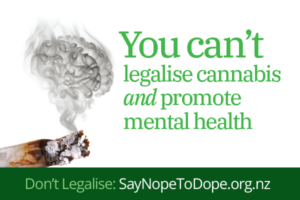
ADDICTION IS EXACTLY WHAT BIG MARIJUANA WANTS
Messages promoting marijuana use will dilute or negate the no-smoking and ‘look after your mental health’ messages. Telling people that smoking up to 30-40 joints a day is OK while at the same time aiming for ‘Smokefree 2025’? Legalising marijuana – which is known to negatively impact mental health – while also trying to reduce suicide  rates? The hypocrisy of those wanting to legalise cannabis is stunning.
rates? The hypocrisy of those wanting to legalise cannabis is stunning.
7. OUR CHILDREN NEED HOPE, NOT DOPE
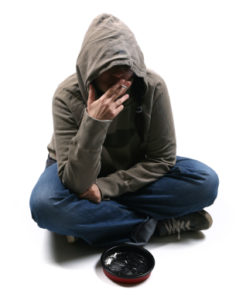
The Christchurch Health and Development Study (CHDS) showed that the use of cannabis was associated with increased risks of a number of adverse outcomes, including: educational delay (dropping out of school), subsequent unemployment, welfare dependence, increased risk of psychotic symptoms, major depression, increased risk of motor vehicle accidents, tobacco use, other illicit drug use and respiratory impairment. Teenagers who start smoking cannabis daily before the age of 17 are seven times more likely to commit suicide. Regular or heavy cannabis use was associated with an increased risk of using other illicit drugs, abusing or becoming dependent upon other  illicit drugs, and using a wider variety of other illicit drugs. Teens will be attracted to the newer forms of consumption – vaping and edibles.
illicit drugs, and using a wider variety of other illicit drugs. Teens will be attracted to the newer forms of consumption – vaping and edibles.
8. LAWS WORK: THE ILLEGAL STATUS DETERS PEOPLE FROM USING
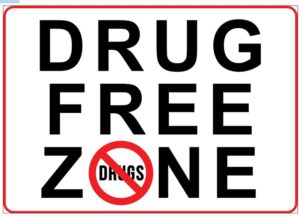
While there will be some who are enticed by the illegality, most people do not like engagement with criminal behaviour or with drug dealers. Laws and firm messages work. The end goal of the anti-smoking campaign, for example, is not ‘slow down’ or ‘moderate’ but QUIT, along with a realistic understanding about the effort required to reach  that end, with numerous strategies and support agencies assisting on the journey. And the numbers overwhelmingly suggest that it is working.
that end, with numerous strategies and support agencies assisting on the journey. And the numbers overwhelmingly suggest that it is working.
9. IT’S NOT A WAR ON DRUGS – IT’S A DEFENCE OF OUR BRAINS
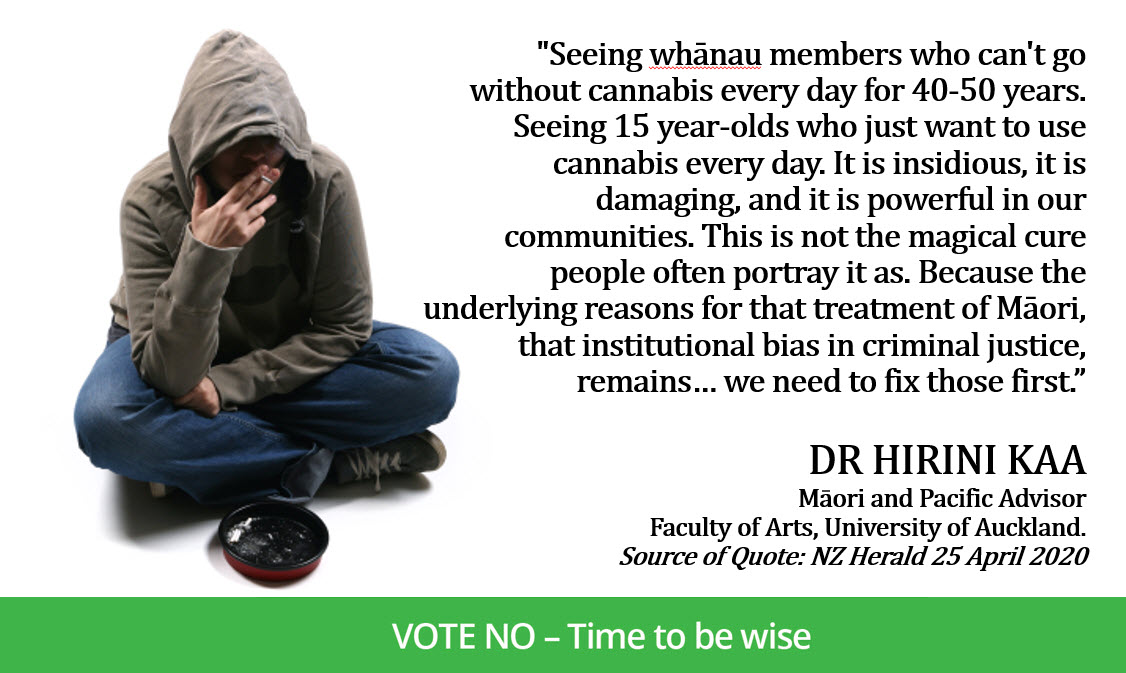
The term ‘war on drugs’ (first coined by the media over a hundred years ago) is outdated and wrongly frames the way we should work to properly address the harmful impacts of drug use and its consequences. We should support a balanced public health and public safety approach to drug policy, guided by science and evidence, not drug advocates. If the war against drugs is lost, then so are the ‘wars’ against theft, speeding, fraud, rape, murder, arson and illegal parking. Few, if any, such ‘wars’ are winnable. As Bertha K. Madras, PhD, Professor of Psychobiology, Department of Psychiatry at Harvard Medical School, states, “This is not a war on drugs: it is a  defence of our brains – the repository of our humanity.”
defence of our brains – the repository of our humanity.”
10. NOBODY IS BEING LOCKED UP FOR SMOKING A JOINT
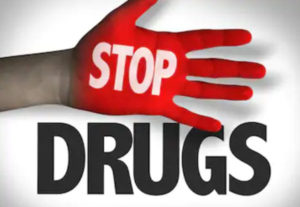
Part of the ‘health’ argument is based on the myth that ‘petty’ marijuana users are filling our prisons. But in the last three years, only 16 people in total have been given a prison or home detention sentence for cannabis possession offences, and these sentences are ‘influenced by their previous offending history’. International studies show that most are imprisoned for drug-related offences, that is, crimes committed while on drugs (murder, armed robbery, theft, assault, child abuse, etc.) or crimes  committed in order to obtain drugs. Public safety and health should take priority.
committed in order to obtain drugs. Public safety and health should take priority.
11. PREGNANT MUMS AND THEIR UNBORN BABIES ARE AT RISK

Legalisation of marijuana has led to major concerns around pregnant mums using the drug, and more newborn babies failing drug tests. Doctors caution that marijuana’s effects on a fetus could include low birth rate and developmental problems. A recent study of half a million women found that marijuana use doubled among pregnant women between 2002 and 2017, and is most common in the first trimester. This is due to increasing acceptance of cannabis use and decreasing perceptions of  cannabis-associated harms.
cannabis-associated harms.
12. THE LINK BETWEEN CANNABIS AND CHILD ABUSE / FAMILY VIOLENCE
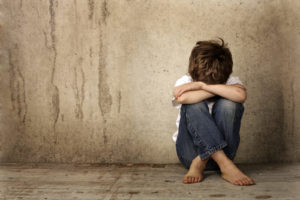
THE IMAGE OF THE LAID-BACK CHILLED POT SMOKER CAN BE DECEPTIVE
A certain percentage of people who use marijuana can experience psychosis and may become violent. In 2018, researchers at Ohio and Tennessee Universities found that marijuana use was associated with psychological, physical and sexual intimate-partner violence. A University of Florida study in 2011 found that frequent marijuana users in adolescence were more than twice as likely to become victims of domestic violence. In 2018, Texas reported that marijuana was the most used substance  connected to child abuse and neglect deaths – a similar finding to Arizona in 2017.
connected to child abuse and neglect deaths – a similar finding to Arizona in 2017.
13. REALITY CHECK – LEGALISING CANNABIS WILL INCREASE USE

U.S. COLLEGE STUDENTS ARE USING CANNABIS AT THE HIGHEST RATES IN 35 YEARS
Some drug advocates try to argue that legalisation of marijuana will not result in an increase in use. Nothing could be further from the truth. The percentage of young adults (18-25-year-olds) reporting past-month marijuana use increased at a higher rate in ‘legal’ states versus non-legal ones. In all jurisdictions with legalised recreational  marijuana, past-month drug use among youth aged 12-17 continues to sit above the national average.
marijuana, past-month drug use among youth aged 12-17 continues to sit above the national average.
14. WORKPLACE DOPE USE WILL AFFECT EVERYONE’S SAFETY
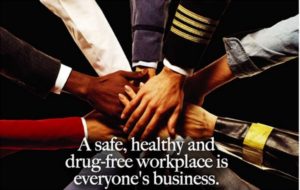
A SAFE, HEALTHY AND DRUG-FREE WORKPLACE IS EVERYONE’S BUSINESS
In the U.S., marijuana is the most commonly detected substance across the majority of industry sectors. Studies consistently show marijuana users have significantly lower levels of commitment to their work than non-users, and are absent more often. If marijuana is legalised in New Zealand, what will be the added costs to the workforce in  absenteeism, accidents, healthcare, additional workplace training and insurance premiums? Drugs don’t work in the workplace.
absenteeism, accidents, healthcare, additional workplace training and insurance premiums? Drugs don’t work in the workplace.
15. DRIVING STONED WILL PUT EVERYONE AT RISK

The rights of people to be safe on the road outweighs the right to smoke cannabis. If a person has THC in their system, we don’t want them on the road endangering other drivers and families. Since recreational marijuana was legalised in Colorado, marijuana-related traffic deaths increased 151%, and doubled in Washington state. A quarter of Canadians aged 18-34 have driven after consuming cannabis or have been a passenger with someone who has, and a Colorado survey in 2018 found 69% of marijuana users have driven under the influence in the past year, and 27% admitted to driving high almost daily. A New Zealand study found that habitual users of  marijuana have about 10 times the risk of car crash injury or death compared to infrequent or non-users.
marijuana have about 10 times the risk of car crash injury or death compared to infrequent or non-users.
16. A SOCIAL INJUSTICE
Pro-marijuana advocates argue that legalisation will increase ‘social justice’, but if there are issues of systemic injustice and racism, the U.S. experience is showing that legalisation does not address the root of these issues and instead only exacerbates these problems by promoting increased drug use and the accompanying negative social consequences in disadvantaged communities. Disparities in drug use and criminal offence rates continue to exist between different racial and income groups in US states which have legalised. In states that have legalised marijuana, minority youth are showing much larger increases in use of marijuana than their Caucasian counterparts. In a similar trend to the placement of alcohol outlets and pokie machine venues in New Zealand, minority and low-income groups are the target of Big  Marijuana for drug use and abuse. Melbourne University research found that daily cannabis use significantly increased a man’s likelihood of becoming homeless.
Marijuana for drug use and abuse. Melbourne University research found that daily cannabis use significantly increased a man’s likelihood of becoming homeless.
17. PROMISES OF A TAX WINDFALL ARE GROSSLY OVERSTATED

Drug supporters and the marijuana industry are quick to overestimate large amounts of revenue from marijuana sales, but underestimate the societal costs of legalisation. Societal costs not referred to or underestimated by drug supporters include: greater other drug use, greater marijuana use among underage students, property and other economic damage, controlling an expanded black market, public intoxication and traffic fatalities, and other financial burdens. Legalisation also results in administrative and enforcement costs, similar to alcohol regulation. Our experience with alcohol and tobacco already shows us that tax revenue from  marijuana sales will fall well short of the costs.
marijuana sales will fall well short of the costs.
18. LEGALISING CANNABIS ISN’T GOOD FOR THE PLANET
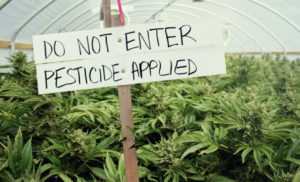
The full effects of the cannabis industry on the natural environment are only just beginning to be recognised. These impacts occur even under a so-called ‘regulated’ environment, as the vast amounts of water and electricity needed to power marijuana farms are damaging to the environment. Marijuana cultivation is almost four times more energy intensive than oil or coal. Because the black market for marijuana in legalised US states has not abated, abuse and degradation of public lands from illegal grows has continued. A recent investigation in San Diego found that nearly 30% of marijuana samples purchased from licensed retailers in Southern California lab- tested positive for pesticides.
tested positive for pesticides.
19. THE BLACK MARKET (AND GANG INVOLVEMENT) WILL CONTINUE
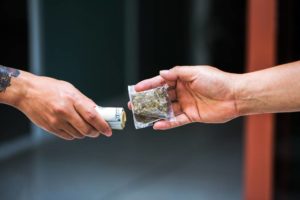
IT’S ABOUT THE MONEY
In areas where marijuana has been legalised, the evidence is overwhelming as to how misleading the claim is that legalisation will end the black market. In Canada, just 29% of users buy all of their product legally. Organised criminal syndicates and gangs adapt to changing political and economic environments, because their ultimate goal is not to break the law but to commercialise and exploit human nature. Legalisation is unlikely to see a decrease in any associated criminal activity, and if cannabis  is heavily regulated, this will drive drug users to the black market with its cheaper and higher potency products, and provide a ‘legal’ cover for dealers in the community.
is heavily regulated, this will drive drug users to the black market with its cheaper and higher potency products, and provide a ‘legal’ cover for dealers in the community.
20. LEGALISATION OF MARIJUANA IS JUST THE START

HELEN CLARK’S U.N. GROUP (GCDP) WANTS TO END THE CRIMINALISATION OF ALL DRUG USE
 If we listen to drug advocates internationally, they want legalisation of not just cannabis but all drugs – cocaine, heroin, meth. Even the Drug Foundation is calling for the decriminalisation of ALL drugs. Legalising dope is not the end of the matter. It’s just the beginning.
If we listen to drug advocates internationally, they want legalisation of not just cannabis but all drugs – cocaine, heroin, meth. Even the Drug Foundation is calling for the decriminalisation of ALL drugs. Legalising dope is not the end of the matter. It’s just the beginning.


DOWNLOAD this information as a PDF
